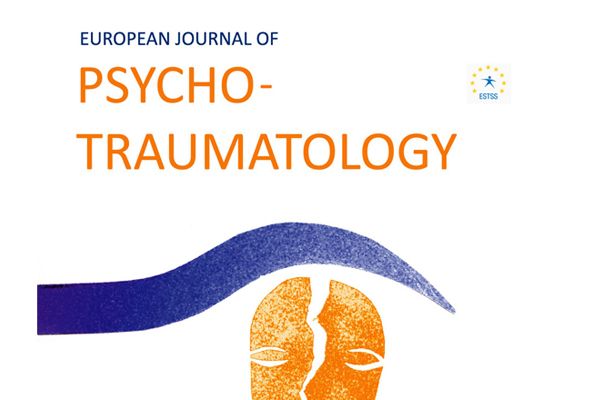21 april 2020
European Journal of Psychotraumatology
https://doi.org/10.1080/20008198.2020.1740492
Dimitris Repantis, Katharina Wermuth, Nikolaos Tsamitros, Heidi Danker-Hopfe, Jan Christoph Bublitz, Simone Kühn & Martin Dresler
Abstract:
Increasing evidence supports a close link between REM sleep and the consolidation of emotionally toned memories such as traumatic experiences. In order to investigate the role of REM sleep for the development of clinical symptoms related to traumatic experiences, beyond experimental models in the laboratory, sleep of acutely traumatised individuals may be examined on the first night after the traumatic event. This might allow us to identify EEG variables predicting the development of posttraumatic stress disorder (PTSD) symptoms, and guide the way to novel sleep interventions to prevent PTSD. Based on our experience, patients’ acceptance of full polysomnography in the first hours after their treatment in an emergency room poses obstacles to such a strategy. Wearable, self-applicable sleep recorders might be an option for the investigation of sleep in the aftermath of trauma. They would considerably decrease the perceived burden for patients and thus increase the likelihood of successful patient recruitment. As one potential sleep intervention, full sleep deprivation directly after trauma has been suggested to reduce the consolidation of traumatic memories and hence act as a secondary preventive measure. However, experimental data from sleep deprivation studies in healthy volunteers with the trauma film paradigm have been inconclusive regarding the beneficial or detrimental effects of sleep on traumatic memory processing. Given that sleep deprivation on the first night after traumatisation might not be acceptable by many traumatised individuals, selective REM sleep suppression, e.g. by a pharmacological intervention, might be an alternative given the role of REM sleep in emotional memory consolidation. While REM-suppressing antidepressants have already been used with some success for the prevention of PTSD after trauma, they have never been tried before the first night of sleep. In conclusion, more experimental and observational research is needed before sleep interventions are performed in actual trauma victims.
Keywords: acute stress disorder; posttraumatic stress disorder; secondary prevention; polysomnography; sleep deprivation; REM sleep; REM sleep suppression
Received 20 Nov 2019, Accepted 03 Mar 2020, Published online: 06 Apr 2020

Het European Journal of Psychotraumatology (EJPT) is een peer-reviewed, interdisciplinair wetenschappelijk tijdschrift dat deel uitmaakt van de European Society for Traumatic Stress Studies (ESTSS).
Het EJPT heeft als doel om wetenschappers, behandelaren en experts te betrekken bij de belangrijkste vraagstukken rond stress en trauma, waaronder individuele gebeurtenissen, herhaalde of chronische trauma's, grootschalige rampen en geweld.

